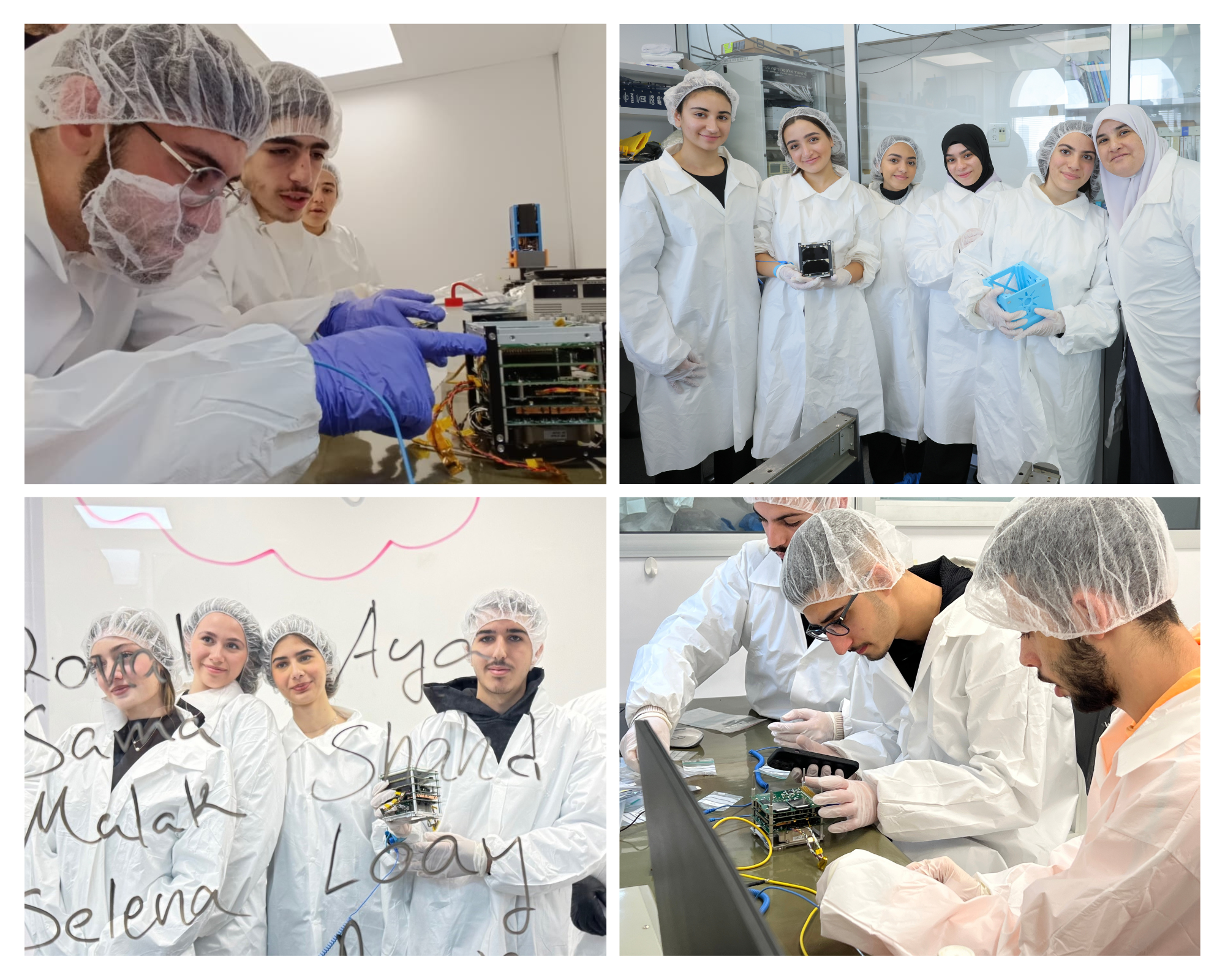Tevel 2
A national program for building and launching swarm of nano-satellites by high school students from all over Israel
About the program:
TEVEL is a pioneering educational scientific program on behalf of the Israel Space Agency and Tel Aviv University, offering high school students a unique opportunity to build nano-satellites and launch them into space.
The program aims to immerse students in the field of space engineering, providing hands-on experience in a real engineering project.
During the project, the students go through all the stages of research and development. They navigate the satellite’s initial design, define its scientific mission and system requirements, develop on-board software, conduct launch readiness tests and after the launch manage the communication and operate the satellites in space.
Students from 9 municipalities collaborate in the project - Sha’ar HaNegev, Ma'ale Adumim, Givat Shmuel, Tayibe, Kfar Kara, Ein Mahil, Yarka, Yerucham and Herzliya. Each group builds a satellite in the clean room at their school. Together, all 9 satellites will be launched into space and will carry out joint scientific research.
TEVEL's curriculum blends theoretical knowledge of scientific and technological subjects such as physics, electronics, software, mechanical engineering and radio communication with hands-on experience. Students engage in various aspects of satellite development, including software developing, system testing, operation of the satellite ground control station, mechanical and thermal design, and trajectory analysis.
This program places students at the forefront of real-world challenges, fostering independent learning, exploration of new information, collaborative teamwork, critical and creative thinking, and problem-solving skills.
About the satellites:
9 CubeSat-type satellites are developed, size 1U- 10*10*11.3 cm.
Scientific missions – the satellites have 2 payloads:
Radiation Measurements in Space:
The payload developed by the Space department at Soreq Nuclear Research Center, will conduct an experiment measuring the flux of high energy particles and cosmic rays emitted from the Sun. The experiment includes monitoring the number of single-event upsets caused by bit flips, latch-ups, and total ionized dose levels.
Amateur Radio Communication: The satellites feature an transponder for ham-radio communication.
Launch: March 2025, SpaceX
Ground control and operation center: The satellites are operated from the satellite communication ground station at Tel Aviv University

ירוחם הרכבה. קרדיט: מרכז מדעים ירוחם; תלמידות עין מאהל בחדר הנקי. קרדיט: רונן חורש, לע"מ; סקר FRR בירכא. קרדיט: אוניברסיטת תל אביב ;טייבה. קרדיט: תפוח פיס טייבה


